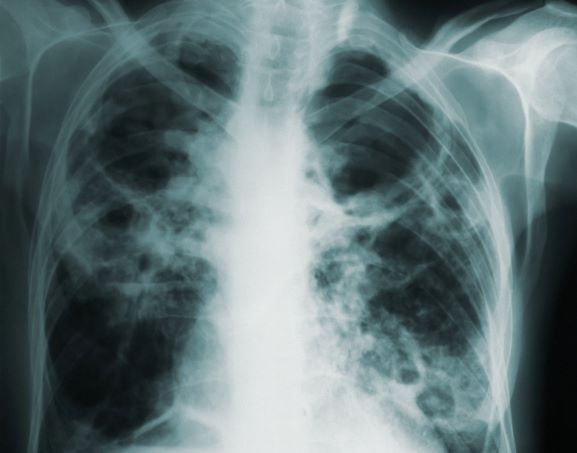University of Oxford researchers have begun recruiting for a phase I clinical trial of a tuberculosis vaccine in human volunteers to develop a new way to test the efficacy of future TB vaccines.

The study is led by the Director of the NIHR Oxford Biomedical Research Centre (BRC), Helen McShane, who is a professor of vaccinology.
Until now, it has not been possible to use a human challenge study – where people are intentionally infected with a disease – to test a new tuberculosis vaccine because humans cannot be safely infected with the bacteria causing TB.
In this new study, however, volunteers will be ‘challenged’ with the BCG vaccine administered through aerosol inhalation, with the aim of mimicking how TB bacteria enter the lungs.
The BCG vaccine contains a similar bacterium to the one causing TB and has safely been used as an injectable vaccine for decades.
The research team will assess how much BCG is recoverable from lung-washing samples taken from volunteers after vaccination. If it can be demonstrated that this approach is well tolerated by the participants, then this method could be used to test new TB vaccines in the future.
The TB044 study, which is supported by the Oxford BRC, plans to recruit a sample of 12 people aged 18 to 50, who are in good health and have previously received a BCG vaccine. They will be split into four groups, each of which will get progressively stronger doses as long as there have been no side effects.
Following vaccination, participants will be monitored closely over six months and treated accordingly if they experience any adverse events. Results are expected in 2023.
Professor McShane said: “The TB044 study is the latest step in developing a safe human challenge model which mimics the way that tuberculosis infection occurs. By building on previous studies from my lab in the Jenner Institute, we hope to be able to use a safe BCG challenge model to understand more about what happens in the early stages of tuberculosis infection.
“This model could help us to both discover new markers of protection against tuberculosis, but also in the future as a way to test new vaccine regimes. Developing a successful vaccine against tuberculosis is an important piece in our armoury in combatting this important infectious disease which could save millions of lives.”
Timothy Fredsgaard-Jones, Clinical Research Fellow at the Jenner Institute and Lead Clinician of the trial, said: “Tuberculosis is the leading global cause of death from a single bacterium, infecting millions of people worldwide every year. Unfortunately, a significant proportion continue to get sick and die, even with antibiotics. Having an effective vaccine is really important in changing this.
“A safe BCG challenge model would allow us to test novel vaccine regimens more quickly and understand which ones have the best chance of working. This trial gives people the opportunity of taking part in research which could ultimately improve the health of people all around the world.”
As well as the Oxford BRC, the US-based National Institutes of Health (NIH) and National Institute of Allergy and Infectious Diseases (NIAID) are funding the study.
Volunteers interested in enrolling on the study can do so online.